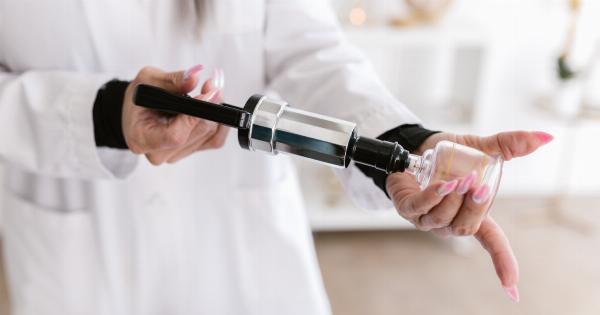Acupuncture is a traditional Chinese medicine practice that has been used for thousands of years to promote health and treat various ailments.
It involves the insertion of thin, sterile needles into specific points on the body to stimulate the flow of energy, or Qi, along pathways known as meridians. By redirecting and balancing the Qi, acupuncture helps to restore the body’s natural balance and promote healing.
How Does Acupuncture Work?
According to traditional Chinese medicine, illness and pain occur when the Qi is blocked or imbalanced.
By inserting needles into specific acupoints, acupuncture stimulates the nervous system, triggering the release of endorphins and other natural pain-relieving chemicals in the body. It also helps to regulate the flow of Qi, promoting self-healing and restoring optimal health.
Conditions Treated with Acupuncture
Acupuncture can be effective in treating a wide range of acute and chronic pain conditions, including:.
- Back pain
- Neck pain
- Joint pain
- Headaches and migraines
- Arthritis
- Fibromyalgia
- Sciatica
- Sports injuries
- Menstrual pain
- Postoperative pain
In addition to pain relief, acupuncture has also been used to treat various other conditions such as digestive disorders, insomnia, anxiety, depression, allergies, and infertility.
The Acupuncture Process
During an acupuncture session, a licensed acupuncturist will conduct a thorough evaluation of the patient’s medical history, lifestyle, and symptoms.
Based on this assessment, the acupuncturist will determine the appropriate treatment plan and the specific acupoints to target.
The acupuncturist will then insert thin needles into the selected points, which may vary depending on the individual needs of the patient. The needles are usually left in place for around 20-30 minutes while the patient lies comfortably and relaxes.
Many patients find the acupuncture experience deeply relaxing and sometimes even fall asleep during the session.
After the needles are removed, the acupuncturist may recommend additional forms of therapy, such as herbal medicine, dietary adjustments, or lifestyle changes, to support the healing process and enhance the effects of acupuncture.
Is Acupuncture Safe?
When performed by a qualified and licensed acupuncturist, acupuncture is considered safe and generally free from side effects.
The needles used are extremely thin, minimizing discomfort, and the risk of infection is low due to the use of sterile, disposable needles.
However, it is essential to seek treatment from a reputable and experienced practitioner to ensure safety and efficacy. Licensed acupuncturists have undergone extensive training and adhere to strict standards of practice.
Benefits of Acupuncture
A growing body of scientific evidence supports the efficacy of acupuncture for pain relief and various other conditions. Some of the benefits of acupuncture include:.
- Drug-free pain relief
- Reduction in inflammation and swelling
- Improved blood circulation
- Enhanced immune system function
- Stress reduction and relaxation
- Improved sleep quality
- Increased energy and vitality
- Improved mental clarity and focus
Acupuncture is also a natural and holistic approach to pain relief that can be used as a complementary therapy alongside conventional medical treatments.
Acupuncture vs. Conventional Medicine
While conventional medicine often relies on medications to relieve pain and manage chronic conditions, acupuncture takes a different approach.
Instead of simply masking symptoms, acupuncture addresses the underlying imbalances and promotes the body’s innate healing abilities.
Additionally, some pain medications can have unwanted side effects or may not be suitable for everyone. Acupuncture offers a drug-free alternative for those seeking pain relief without the risk of adverse reactions.
Choosing an Acupuncturist
When looking for an acupuncturist, it is important to choose a licensed practitioner who has completed the necessary training and meets the standards of professional organizations. Consider the following factors when selecting an acupuncturist:.
- Qualifications and certifications
- Experience in treating your specific condition
- Reputation and reviews
- Comfort and compatibility
- Availability and location
Your primary healthcare provider or trusted friends and family may also be able to provide recommendations or referrals to reputable acupuncturists.
Conclusion
Acupuncture is a natural and time-tested approach to pain relief and holistic healing.
By aligning the body’s energy and promoting self-healing, acupuncture offers an alternative or complementary option for those seeking relief from acute or chronic pain.
While further research is needed to fully understand the mechanisms behind acupuncture, its widespread use and positive anecdotal evidence speak to its effectiveness.
If you are considering acupuncture, consult with a licensed acupuncturist to discuss how this ancient practice may benefit your specific needs.





























